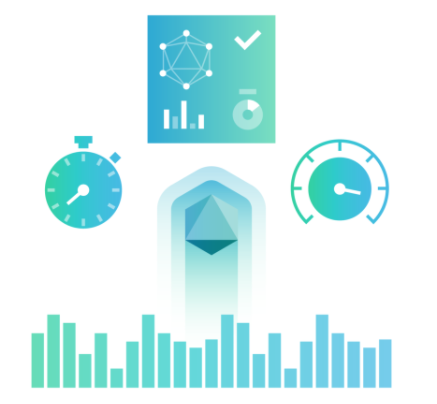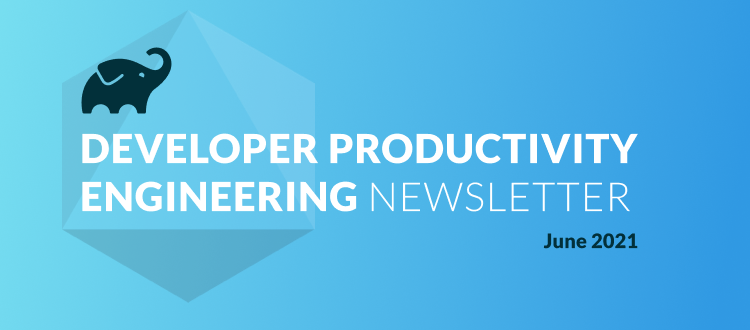
Expert Takes
 Gradle Enterprise Trends & Insights allows dev teams to respond proactively to systemic problems and longer-term performance and failure rate regressions. It does this by providing a Trends Dashboard that makes key metrics and KPIs more observable and actionable. In our most recent Blog post, Eric Wendelin, Analytics Lead for Gradle Enterprise, shares two simple but powerful tips for using trend data to interpret and evaluate build performance. He then demonstrates how he recently put these principles into action using a real-life Gradle Enterprise customer scenario and customer data. Gradle Enterprise Trends & Insights allows dev teams to respond proactively to systemic problems and longer-term performance and failure rate regressions. It does this by providing a Trends Dashboard that makes key metrics and KPIs more observable and actionable. In our most recent Blog post, Eric Wendelin, Analytics Lead for Gradle Enterprise, shares two simple but powerful tips for using trend data to interpret and evaluate build performance. He then demonstrates how he recently put these principles into action using a real-life Gradle Enterprise customer scenario and customer data.

Ideas & Insights
Dependency management capabilities available in Gradle Enterprise make it easier than ever to debug dependency-related build problems in Maven builds by providing a level of data visibility that you don’t get using Maven alone. Specifically, Maven Build Scans offers a Dependencies section that helps you visualize the resolved dependency graph used to form the classpaths for each module. It is available for every Maven captured build, without the need to invoke a specific Maven goal.
The primary benefit for Maven users is dramatically more efficient troubleshooting. This results from the ability to more easily inspect and analyze the dependency resolution results for any build and understand the actual versions selected and where substitutions occurred. To learn more about dependency management capabilities available in Gradle Enterprise and to review practical use cases of these features start with this Blog. If you aren’t already using Gradle Enterprise, you can address some of your Maven dependency management challenges with the free scans.gradle.com service which provides some of the troubleshooting capabilities of Gradle Enterprise.

PRODUCT NEWS
Agents are the compute resources that execute tests when using Test Distribution. With the recent release of Gradle Enterprise 2021.2, it is now easy to auto scale agents when using an elastic compute platform based on demand for test runs.
Agent pools can now be created, along with their scaling characteristics, such as the minimum and maximum number of agents. Compute platform auto scalers can consume a simple HTTP endpoint that indicates the target number of agents for each pool based on demand. The Test Distribution Agent Manual provides step-by-step instructions for auto scaling with Kubernetes. Real-time and historical usage can be visualized by Gradle Enterprise administrators, including the number of utilized, connected, and desired agents.
You can learn more about this and other Gradle Enterprise 2021.2 features, such as the ability to capture and visualize test logging output for Maven builds and identify the task critical path for Gradle builds, by checking out the release notes.

INDUSTRY NEWS
The topic for the May DevProdEng Showdown was “Android Architecture and Developer Productivity Engineering at Scale.” In this episode Android gurus from some of the most famous technology and global business brands shared thought-provoking choices they support or interesting approaches they recommend to optimize their codebase architecture and scale their developer productivity processes.
This episode’s All-Star panelists were:
- Angella Derington, Dropbox
- César Puerta, Twitter
- Jake Wharton, Square
- Michael Bailey, American Express
To hear what the experts had to say on topics related to components, modularization, mocks and fakes, legacy code, UI methodologies, and more, check out the 25-minute video recording.

Featured Upcoming Event
Intro to Developer Productivity Engineering: In this hands-on online training with labs, DPE guru, Raju Gandhi, will demonstrate DPE best practices and tools in action—using examples from Java projects that rely on Maven or the Gradle Build Tool. In this workshop you will learn how to:
- Accelerate debugging and root cause analysis time in half leveraging Build Scans.
- Achieve up to 90% reductions in local and remote build times using Build Cache and Test Distribution.
- Avoid performance regressions, continuously improve toolchain reliability, and better manage flaky tests with build performance and build failure analytics.
DevProdEng Showdown S1E5: Open Source at Scale and Productivity Engineering: In this episode, thought leaders from the open source community weigh in on thought-provoking technology choices they support or interesting practices they recommend to scale their projects, optimize productivity, and ensure their devs have a great experience. This episode’s all-star panelists include Josh Long (Spring), Luke Daley (Gradle), Fred Simon (JFrog), and a fourth mystery panelist.
|
